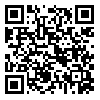Volume 79, Issue 10 (January 2022)
Tehran Univ Med J 2022, 79(10): 810-821 |
Back to browse issues page
Download citation:
BibTeX | RIS | EndNote | Medlars | ProCite | Reference Manager | RefWorks
Send citation to:



BibTeX | RIS | EndNote | Medlars | ProCite | Reference Manager | RefWorks
Send citation to:
Raisi F, Yahyavi S T, Shahvari Z, Kazemi Khaledi E, Soleimani M, Ashrafi A. Development of the “safe sex knowledge and behavior questionnaire”,
a tool for use in patients with severe mental illnesses. Tehran Univ Med J 2022; 79 (10) :810-821
URL: http://tumj.tums.ac.ir/article-1-11473-en.html
URL: http://tumj.tums.ac.ir/article-1-11473-en.html
Firoozeh Raisi1 
 , Seyyed Taha Yahyavi1
, Seyyed Taha Yahyavi1 
 , Zahra Shahvari2
, Zahra Shahvari2 
 , Ehsan Kazemi Khaledi *
, Ehsan Kazemi Khaledi * 
 3, Mehdi Soleimani1
3, Mehdi Soleimani1 
 , Agaah Ashrafi4
, Agaah Ashrafi4 


 , Seyyed Taha Yahyavi1
, Seyyed Taha Yahyavi1 
 , Zahra Shahvari2
, Zahra Shahvari2 
 , Ehsan Kazemi Khaledi *
, Ehsan Kazemi Khaledi * 
 3, Mehdi Soleimani1
3, Mehdi Soleimani1 
 , Agaah Ashrafi4
, Agaah Ashrafi4 

1- Department of Psychiatry, Roozbeh Hospital, School of Medicine, Tehran University of Medical Sciences, Tehran, Iran.
2- Department of Nursing and Midwifery, School of Nursing and Midwifery, Gachsaran Branch, Islamic Azad University, Gachsaran, Iran.
3- Department of Psychiatry, Razi Psychiatric Hospital, School of Medicine, University of Social Welfare & Rehabilitation Sciences, Tehran, Iran. ,ehsankazemikhaledi@yahoo.com
4- Department of Psychiatry, Razi Psychiatric Hospital, School of Medicine, University of Social Welfare & Rehabilitation Sciences, Tehran, Iran.
2- Department of Nursing and Midwifery, School of Nursing and Midwifery, Gachsaran Branch, Islamic Azad University, Gachsaran, Iran.
3- Department of Psychiatry, Razi Psychiatric Hospital, School of Medicine, University of Social Welfare & Rehabilitation Sciences, Tehran, Iran. ,
4- Department of Psychiatry, Razi Psychiatric Hospital, School of Medicine, University of Social Welfare & Rehabilitation Sciences, Tehran, Iran.
Abstract: (1146 Views)
Background: Patients with severe mental illnesses are more prone to experience sexual health problems. Herein, we developed a "Safe Sex Knowledge and Behavior Questionnaire for Patients with Severe Mental Illnesses"(SSKBQ-SMI).
Methods: The present study was conducted in the form of methodological research in 4 stages. In the first stage, items of the questionnaire were selected and the item pool was formed by using similar studies and experts' opinions. During the next steps, the psychometric properties of the questionnaire were assessed using content validity, face validity, reliability and construct validity. The content validity was tested using the Content Validity Index and Content Validity Ratio. The charts of content validity were given to 13 specialists expert in sexual health including psychiatrists, clinical psychologists, gynecologists, urologists, and infectious disease specialists. The reliability was tested by using the test-retest method in 70 patients with two-week intervals. The construct validity was tested using exploratory factor analysis in 265 patients. The internal consistency was calculated by using Cronbach's alpha index.
Methods: The present study was conducted in the form of methodological research in 4 stages. In the first stage, items of the questionnaire were selected and the item pool was formed by using similar studies and experts' opinions. During the next steps, the psychometric properties of the questionnaire were assessed using content validity, face validity, reliability and construct validity. The content validity was tested using the Content Validity Index and Content Validity Ratio. The charts of content validity were given to 13 specialists expert in sexual health including psychiatrists, clinical psychologists, gynecologists, urologists, and infectious disease specialists. The reliability was tested by using the test-retest method in 70 patients with two-week intervals. The construct validity was tested using exploratory factor analysis in 265 patients. The internal consistency was calculated by using Cronbach's alpha index.
|
Results: After determining the content and face validity, a tool was obtained with 16 True/False items in the knowledge section (with one score for each correct answer and the total score range from 0 to 16) and 16 five-point Likert scale items in the behavior section (with each question score range from 0 to 3 and the total behavior score range from 0 to 48, the lower score defined safer behavior). The correlation coefficient of the scale scores in the test-retest method was calculated to be 0.880 (P<0.001) and 0.951 (P<0.001) in the sections of knowledge and behavior, respectively. The Cronbach's alpha coefficient was 0.809 for the section of knowledge, 0.756 for the section of behavior, and 0.782 for the whole questionnaire. Exploratory factor analysis confirmed the existence of 4 factors in the knowledge section and 3 factors in the behavior section.
Conclusion: The present 32-item questionnaire was designed based on experts' opinions and important statements of patients about sexual health, simple scoring, good reliability and validity, is a suitable tool for assessing the safe sex knowledge and behavior in patients with severe mental illnesses. |
Type of Study: Original Article |
Send email to the article author
| Rights and permissions | |
 |
This work is licensed under a Creative Commons Attribution-NonCommercial 4.0 International License. |



